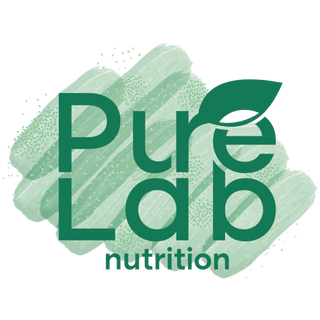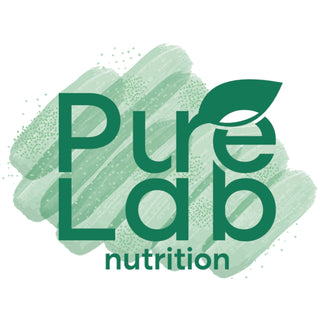Vitamin C is an essential nutrient for the human body. The ultimate anti-fatigue vitamin, it is known for its antioxidant properties and its role in strengthening the immune system.
However, few people know why it is useful to take a vitamin C cure, and that yes, it is a deficiency that can exist, particularly in the elderly .
To learn a little more, we will explore the benefits of a vitamin C cure, the recommended dosages, the precautions to take and the mistakes to avoid, so that you can get the most out of this ally of choice for your health!
Why take a vitamin C cure?
Vitamin C , also known as ascorbic acid, is an essential nutrient that our bodies cannot produce naturally.
It plays an important role in many bodily functions, including maintaining a strong immune system, producing collagen for healthy skin, building bones and teeth, regulating iron absorption, and reducing oxidative stress. Just that! 😮💨
You can learn more about these many benefits in our complete guide to vitamin C. However, being deficient in vitamin C is not without consequences…
We recommend our Liposomal Vitamin C:
- ✅ 90 capsules
- ✅ Better absorption ("liposomal" quality)
- ✅ No flavors or chemical dyes
- ✅ Made in France
Vitamin C deficiency
Signs of vitamin C deficiency are subtle at first, but they can worsen over time if nothing is done to correct it. Common signs of such a deficiency include:
- physical fatigue;
- slowed psychological functions;
- sensitive joints;
- bleeding gums;
- weakened skin;
- dry, rough skin;
- brittle hair;
- loose teeth;
- Sensitivity to colds and seasonal changes.
If you are experiencing these signs, it is high time to consider taking a vitamin C cure!
The benefits of a vitamin C cure
The benefits of taking vitamin C are numerous. Vitamin C helps support immune function, reduce fatigue, prevent colds, reduce oxidative stress, promote skin health (it helps form collagen), and increase iron absorption in the body.
A vitamin C cure can be particularly beneficial for smokers, people under significant physical or mental stress, the elderly and pregnant or breastfeeding women.
In short, by taking a regular vitamin C cure, you can prevent deficiencies, strengthen your immune system and improve your health in general. Everything we love!
How to take a vitamin C cure: forms, dosages and precautions
Convinced to start a vitamin C cure? Great!
The question remains which form of vitamin C to use. There are several on the market, each with its own advantages and disadvantages.
For example, we can cite:
- classic vitamin C, very popular because it is very economical and easy to dose;
- liposomal vitamin C, in capsule form, which has the particularity of being highly assimilable (much higher quality than classic vitamin C);
- natural vitamin C (example with Acerola Bio, a natural source of vitamin C, which also contains various nutrients beneficial for health).
To discover other forms of vitamin C, and learn more about their strengths and weaknesses, we refer you to our article dedicated to the best vitamin C.
As for dosages, they are around 110 mg per day for adults ( see p. 8 of this document from the High Authority of Health ).
However, these needs increase for certain types of populations, such as pregnant women (120 mg/day), breastfeeding women (130 to 170 mg/day), the elderly (120 to 130 mg/day) or athletes (up to 1000 mg/day).
Small clarification: the doses indicated above are generally recommended to avoid vitamin C deficiency; higher doses (1000 mg/day) are often recommended to take full advantage of the many benefits of this essential vitamin!
Before starting a vitamin C treatment, it is still recommended to consult your doctor or pharmacist to ensure that vitamin C will not interfere with other medications or dietary supplements that you are already taking. Also take into account your medical history and possible allergies, to avoid any adverse reactions.
And of course, choose a form of vitamin C that suits your needs and personal preferences.
We recommend our Liposomal Vitamin C:
- ✅ 90 capsules
- ✅ Better absorption ("liposomal" quality)
- ✅ No flavors or chemical dyes
- ✅ Made in France
Learn how to maximize the benefits of a vitamin C regimen
To maximize the benefits of vitamin C, we recommend combining its intake with other nutrients. Vitamin C and vitamin E, for example, have a synergistic action, that is, they reinforce each other.
Flavonoids, found in citrus fruits, berries, apples, and onions, can also improve the absorption and bioavailability of vitamin C. Amino acids like lysine and proline, found in protein foods, can also help with collagen synthesis, which boosts vitamin C's anti-aging effects. Additionally, certain minerals like zinc and copper can help maintain a healthy immune system, which is crucial for overall good health.
Of course, beyond dietary supplements, the ideal is to include foods rich in vitamin C in your daily diet. Citrus fruits, such as oranges, lemons and grapefruits, are obvious sources of vitamin C, but it is also possible to find this vitamin in other fruits and vegetables, such as kiwis, strawberries, red peppers and broccoli.
Herbs, such as parsley and thyme, are also rich in vitamin C. Note that foods containing vitamin C must be fresh and of good quality to ensure maximum benefits. We therefore recommend that you favor seasonal products and foods grown locally.
To preserve your vitamin C capital, you must limit the factors that can destroy it. Vitamin C is sensitive to heat, oxidation and light, so it is advisable to consume foods rich in vitamin C raw or cooked quickly at low temperatures. We also recommend that you limit your consumption of alcohol, tobacco and sugar, which can reduce the absorption and bioavailability of vitamin C in the body – to name a few!
In short, maintaining a healthy lifestyle, with a balanced diet, regular physical activity and quality sleep, promotes overall health and maximizes the benefits of vitamin C.
Vitamin C treatment: 3 mistakes to avoid
When you decide to take a vitamin C cure, there are certain mistakes to avoid to maximize the benefits and avoid side effects.
1. First, follow the recommended dosages for each form of vitamin C. Too high doses can cause side effects such as stomach upset, diarrhea, and abdominal pain.
It is therefore important to follow the manufacturer's recommendations or consult a healthcare professional to determine the dose appropriate for your needs.
2. Another common mistake: choosing a form of vitamin C that doesn't fit your needs and lifestyle. Opt for a form that you like. For example, vitamin C capsules are more convenient for those who want a form of vitamin C that's easy to take on the go. Also, make sure that the vitamin C you choose is of excellent quality (high purity, ultra-fine powder, etc.).
3. Finally, it is essential to take into account possible interactions between vitamin C and other medications or dietary supplements. For example, vitamin C can interact with anticoagulant medications, antibiotics and non-steroidal anti-inflammatory drugs, which can lead to unwanted side effects. Do not hesitate to ask your doctor or pharmacist for advice if you have any doubts!
Vitamin C treatment, THE ultimate wellness treatment!
As we have seen, vitamin C is an essential nutrient for the health and well-being of the body. A deficiency in vitamin C can lead to many health problems, but properly dosed supplementation can help fill nutritional gaps and improve overall health.
Vitamin C is known for its anti-fatigue properties and its key role in iron absorption, which is essential for red blood cell production. But to get it right, pay close attention to various factors such as the choice of vitamin C form, recommended dosages, and interactions with other medications.
By incorporating vitamin C-rich foods into your daily diet and adopting a healthy lifestyle, you can maximize the benefits of vitamin C for optimal health and long-lasting energy.












